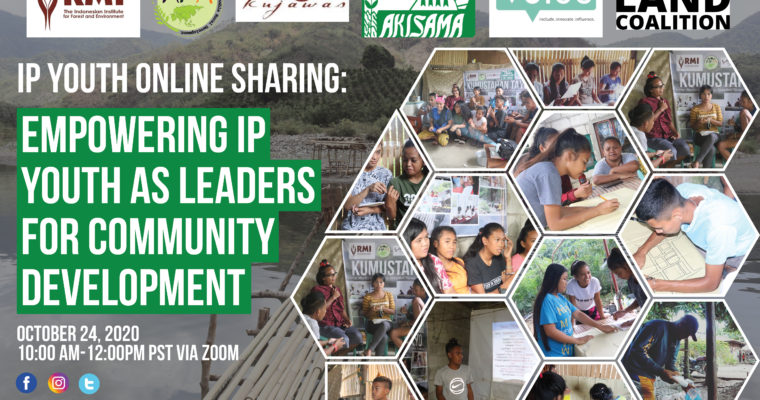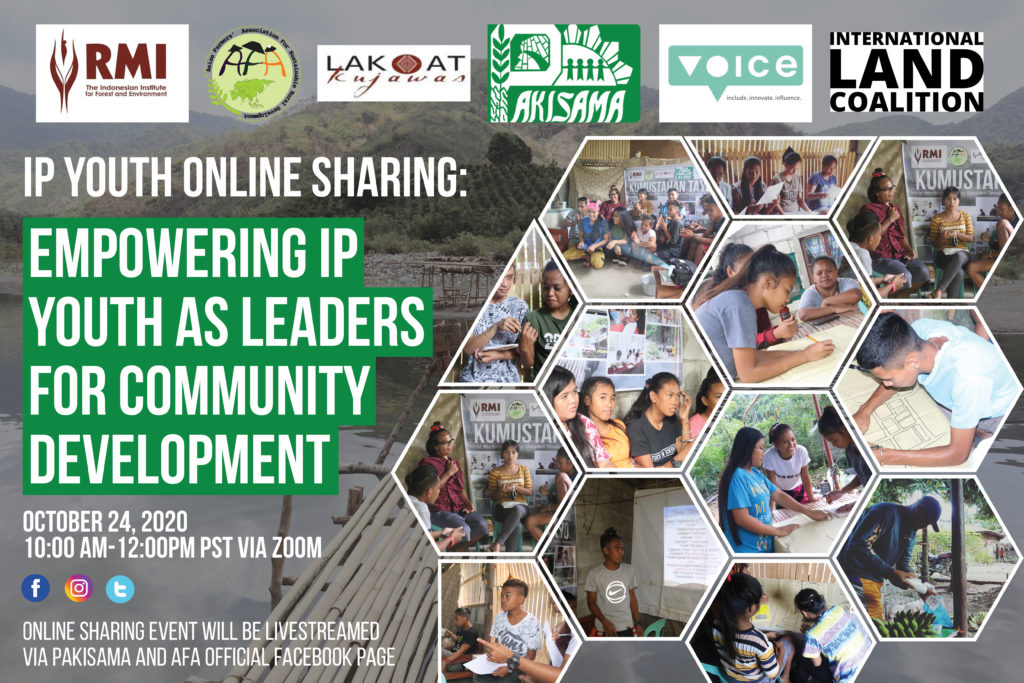The Asian Farmers Association for Sustainable Rural Development (AFA) and the Pambansang Kilusan ng mga Samahang Magsasaka (PAKISAMA) invite you to the Online Sharing of young IPs with a theme, “Empowering IP Youth as Leaders for Community Development” happening on October 24, PST via Zoom. The event will highlight the voices and experiences of the Dumagat-Remontado indigenous youth, sharing the stories of their communities, their existing struggles and concerns, and the major learnings they have from the ongoing “Being and Becoming Indigenous project” with other communities and countries. This will be livestreamed through the official Facebook pages of AFA and PAKISAMA:
https://facebook.com/AsianFarmers/
https://facebook.com/pakisamaofficial
Rationale/Background
Tanay, or the Municipality of Tanay, is a first-class municipality in the province of Rizal located in Region IV or the CALABARZON with a total of 20 barangays. One of these barangays includes Brgy. Daraitan where some of the Indigenous Peoples or the Dumagat-Remontado resides. Brgy. Daraitan has seven sitios, six of which have existing IP communities namely Sitio Alasasin, Sitio Vito, Sitio Manggahan, Sitio Daraitan Proper, and Sitio Irid. Based on the 2019 profile provided by the local barangay unit, it has a total population of 5, 230 individuals, composed of 1, 398 households.
Daraitan is a sacred paradise attracting at least 1,500 tourists a day (tourist regulation imposed by the BLGU and IPS) to limit the crowd roaming within their respective eco-tourist area and maintain peace and order. Tourist activities include river picnic, river trekking, enjoying eco-camp sites, cottages, trekking or mountain climbing, and lastly caving in Tinipak (long cave). According to local tourist organizers and LGU tourism office, they rake almost a million peso a day from the tourism IGP alone. Not to mention the mountainous Barangay of Daraitan that is rich in agricultural products like kalamansi, rambutan, lansones, coconut, local durian, kamansi, gabi, kamoteng kahoy, kamoteng baging (sweet potato), banana, and many other vegetables meant for personal consumption and mostly for vending to acquire other necessities (cooking oil, sugar, hygiene, appliances and other power machines). Other agricultural resources also include “rattan”, tiger grass, bamboo, etc.
Most of the IP youth assimilated the “Tagalog” culture yet their parents proudly share their indigenous origins and remained customary traditions. Their parents are primarily farmers, agricultural traders, middle man, or own small businesses. The youth are rarely engaged in their family farming business or source of livelihood but are engaged in other small businesses like sari-sari (small local) stores, turo-turo, and other small shops offering other services. Their parents rather send them to schools to acquire comfortable jobs within the cities or urban areas with decent pay. Perhaps, the transfer of farming technology no longer applies.
Objectives
The online sharing aims to:
- Provide information and context of the partner community Brgy. Daraitan (covering the six sitios)
- Present the issues faced by the community and the IP Youth
- Share key learnings, hopes, and dreams of IP Youth participants as being part of the BBI project
- Generate solidarity support from the ongoing struggles of the community
- Facilitate dialogue and open discussions among the IP youth participants
Program Flow
| Time | Session/Topic |
| 10:00 AM-10:15 AM | Program Proper
Opening -Prayer video -Activity objectives -Introduction of participants |
| 10:15 AM-10:35 AM | Sharing of the Dumagat Remontado Community
-culture, traditions, and practices -livelihood sources, community environment (highlighting Daraitan as an ecotourism center |
| 10:35 AM-10:45 AM | Open forum |
| 10: 45 AM-10:55 AM | Ten-minute intermission number |
| 10:55 AM-11:10 AM | Sharing on the youth struggles, community issues |
| 11:10 AM-11:25 AM | Sharing of hopes and dreams as being part of the BBI Project |
| 11:25 AM-11:35 AM | Open forum |
| 11:35 AM-12:00 PM | Closing |





Comments are closed